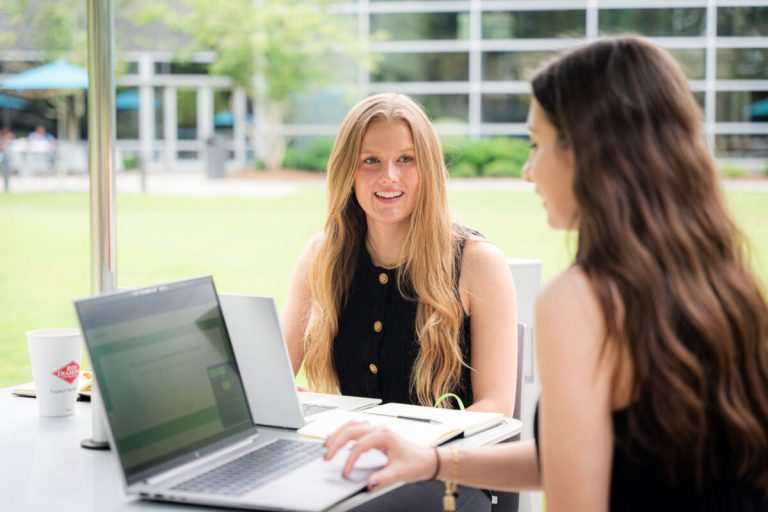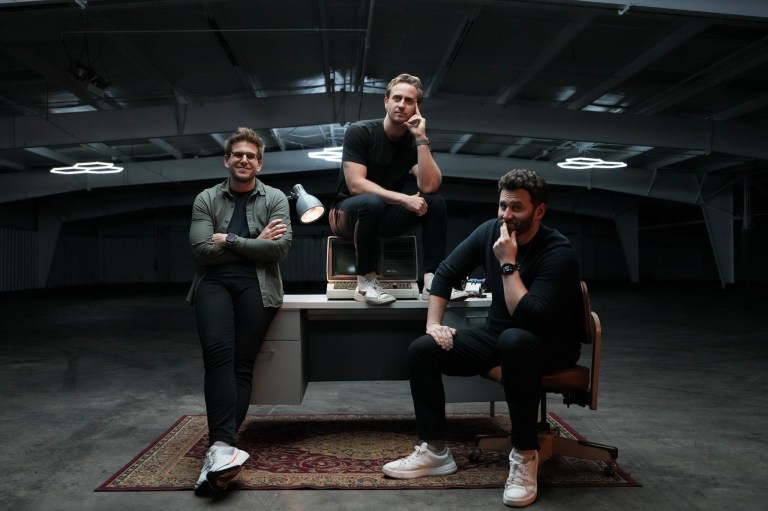Reviewed by: Callie Morrison
How The Magic City is helping one healthtech biz thrive
Reading time: 4 minutes
Sponsored

One day, Paolo Alejandro Catilo got a call from his sons’ school saying his oldest had bumped his head on the playground while playing hide-and-seek.
Who knew this call would lead him to found Cerebro NeuroTech and to discover Birmingham?
Certainly not Paolo—keep reading to learn more about his story and get a glimpse at how Cerebro NeuroTech aims to shape the future, plus the crucial role The Magic City is playing in the company’s evolution.
The phone call that led to Cerebro NeuroTech

Although Paolo’s son initially seemed okay, later that evening he fell off of a stool, leading to a whole series of questions revolving around “What is wrong and what do we need to do?”
Thankfully, everything turned out alright, but the wheels in Paolo’s brain started spinning—could he create a tool that would help others—parents, coaches, doctors—figure out what to do in a similar situation?
A little backstory
At this point, it’s important to back up and let you know that Paolo—the father of three highly active, clumsy boys—already had a well-established career in deep tech and healthcare.
Plus, he had his own experience with traumatic brain injury (TBI) after a motorcycle accident in Washington, DC left him unconscious.
A new mission

From that vantage point, Paolo’s research sent him on a mission to make the diagnostic process for concussion and TBI more efficient to save more lives.
Enter Cerebro NeuroTech, a spatial-computing and extended reality (XR) software tech startup that works to “solve the complexities of Sport-Related Concussions (SRC) and brain trauma detection, evaluation and care.”
The company, which incorporated in July 2022, recently set up an office at Innovation Depot and is now partnering with the Lakeshore Foundation to enhance its product in collaboration with people with disabilities.
Growing Cerebro NeuroTech in Birmingham


Prosper Health Tech Accelerator (PHTA) powered by gener8tor participants having fun (PHTA)
Paolo’s first memory of Alabama was getting off a jet plane at Maxwell Air Force Base in Montgomery at four years old when his family emigrated from the Philippines.
Imagine his surprise, then, when he got a call from Kellie Clark, asking if he wanted to be part of an upcoming cohort of the Prosper Health Tech Accelerator (PHTA) powered by gener8tor here in Birmingham.
ICYMI, their mission is “to identify and support the most audacious and disciplined healthcare founders, providing them with the resources and network to reimagine the healthcare industry.”
After doing his due diligence, Paolo decided to go for it and joined the PHTA in April 2024.
An easy place to make connections

Paolo’s story here in Birmingham has a definite “meant-to-be” feel about it.
Within a couple of days of being here, he met Maria Underwood with Birmingham Bound, who connected him with the Lakeshore Foundation.
Soon after, he met Brooke Gillis and Richie Kruunenberg and had a tour of Innovation Depot.
Knowing he wanted to be right in the heart of Birmingham’s entrepreneurial ecosystem, Paolo signed a 12-month lease.
Paolo and his cofounders have had the opportunity to pitch to Blue Cross and Blue Shield of Alabama; he’s made connections with UAB athletics; and it seems like everywhere he turns, people are opening doors and making introductions.
“I learned a lot about how Birmingham works as a community, and it’s been nothing but supportive—I am grateful that I’m here.”
Paolo Alejandro Catilo, CEO, Cerebro NeuroTech
Cerebro NeuroTech’s partnership with the Lakeshore Foundation

Cerebro uses a virtual reality (VR) headset programmed with artificial intelligence (AI) models that help it detect concussion and traumatic brain injury (TBI) with up to 95% accuracy and within 60 seconds.
Cerebro is currently working with Lakeshore’s Sports Science and Performance Center (SSPC) to ensure that the models they build include the experience of different types of athletes.
“The partnership between Cerebro and Lakeshore will be really important in helping to develop rapid detection software for sports related injuries, and will do so in a way that’s inclusive of all athletes.”
Maria Underwood, President, Birmingham Bound
The future for this startup looks bright, and they’re already working on building models to detect neurocognitive diseases like Alzheimer’s and Parkinson’s.
It’s exciting that Birmingham can play such an important role in the development of this kind of life-changing technology.
Cerebro NeuroTech + other health tech startups were featured Wednesday, June 26 at the gener8tor HealthTech Spring 2024 Showcase.
Sponsored by:



